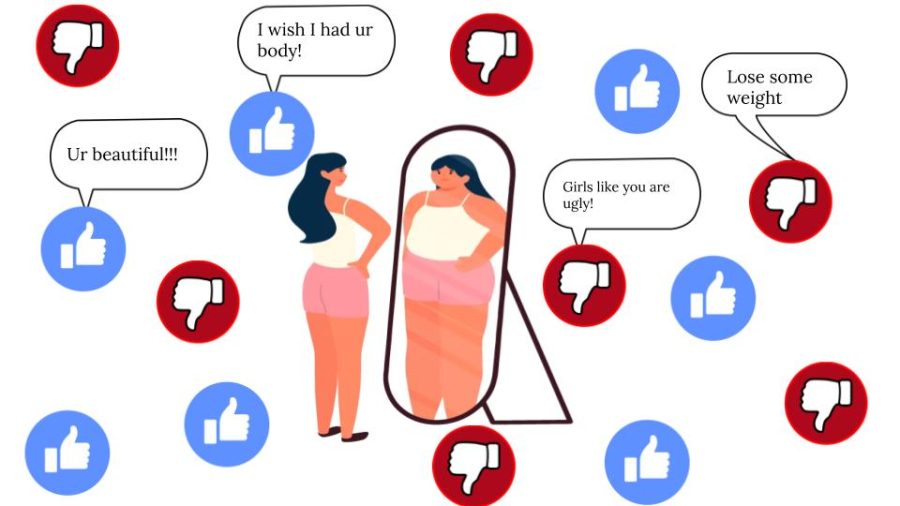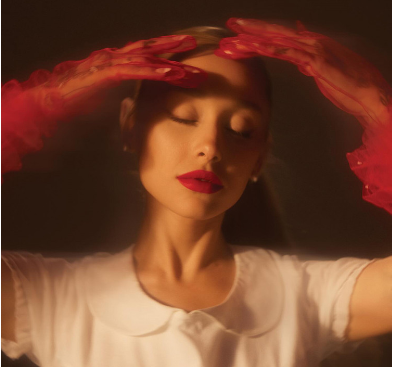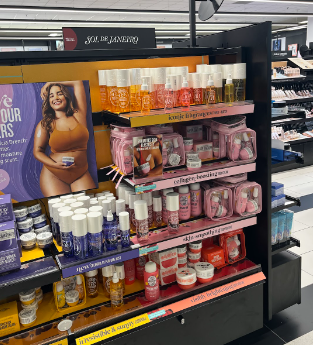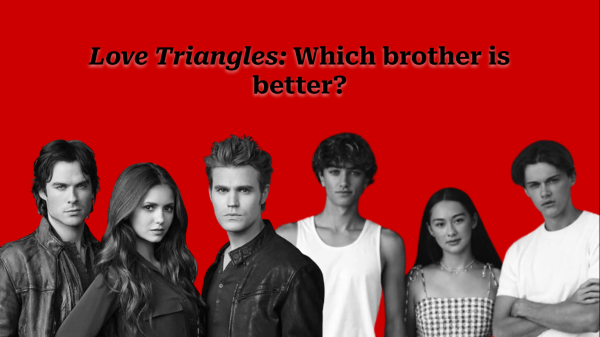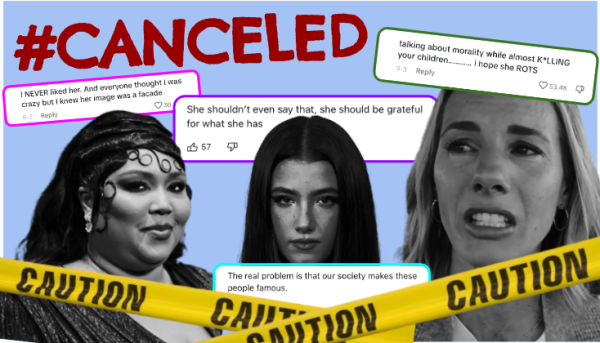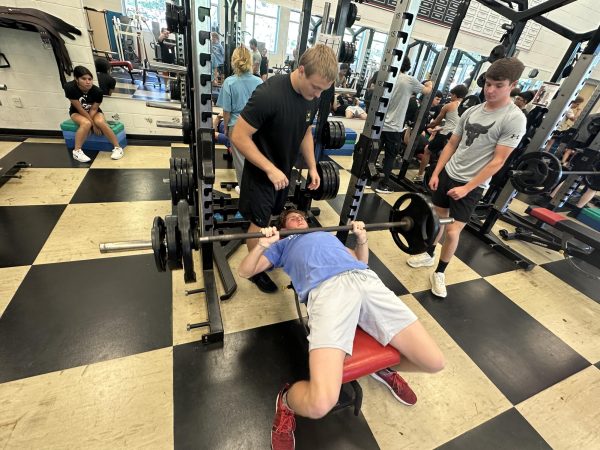“Clicks” and “Likes” encourage eating disorders
TikTok trends do damage to self image. How do we fight against it?
As apps such as TikTok and Instagram are frequently used for spreading positivity, there is a much darker side to these apps. There are many “trends” on TikTok that are encouraging extreme food behaviors, which contribute to eating disorders and body dysmorphia. Many participants of these trends are very slim women, which may send a negative message to other women who do not look like the women on their screens. A “normal” body is not paper thin.
One “trend” that has been circulating is when individuals show off their side profile. There have been hundreds of thousands of videos posted participating in this trend, but the only videos that seem to go viral are those of women who have very sharp, contoured jaw lines. Videos where plus size women are participating in this trend are bombarded with hateful comments.
Another set of videos gives “advice” on how to get rid of double chins as well as how to change the shape of your nose. The individuals who do have a double chin, or do not have small, straight noses are ridiculed. Commenters are telling the individual they are ugly, fat, and not good enough because they don’t have a specific feature.
One of the most popular trends is where an individual turns their bare back to the camera to show how their back muscles look. Women are also participating by sitting on chairs, and raising their hands over their head. The whole focus of the video is how their butt looks. Once again, the individuals who don’t have the “ideal” back or body shape are being tormented in the comments because of how their body looks.
Many of these positions sexualizes the woman. Why are they choosing to participate in this degrading trend?
TikTok is not an app for adults only. The age limit to join TikTok is 13, but many children younger than that are on the app. An Insider report stated that “Internal company data from July shows TikTok classified 18 million users – more than one-third of its daily user base in the US – as being 14 years or younger. Even with their parents monitoring the videos they watch, it is impossible to prevent what may show up on their For You Page. There is no control on who sees what, which means that it is very likely everyone is soaking in body shaming images.
The New York Times published an article regarding the connection between social media and eating disorders. The article stated, “Many popular TikTok trends that do not explicitly promote eating disorders still highlight thin bodies, implicitly advocating thinness as the ideal.”
Another article was published by the Newport Academy breaking down the causes, statistics, and dangers of eating disorders. One statistic stated that,” according to the National Eating Disorder Association (NEDA), 20 million women and 10 million men suffer from an eating disorder at some time in their life . . . Every 62 minutes, at least one person dies as a result of an eating disorder. The high death rate associated with anorexia is what makes eating disorders the deadliest of all mental illnesses. A review of nearly 50 years of research confirms that Anorexia Nervosa has the highest mortality rate of any psychiatric disorder.”
The article continued by saying that,” approximately 7 in 10 women and girls report a decline in body confidence and increase in beauty and appearance anxiety, which they say is driven by the pressure for perfection from the media and advertising unrealistic standards of beauty. . . Nine out of ten women say they will actually not eat and risk putting their health at stake when they feel bad about their body image. And 7 in 10 girls said they’re more likely to be less assertive in their decisions when they’re feeling insecure . . . Another study found social media use is linked to self-objectification, and using social media for merely 30 minutes a day can change the way you view your own body.”
As technology and social media become are a huge part of each day, the more negative influence leaks into our schools. Students can create pressure for their peers to look like them, or to change themselves because they don’t feel “good enough.” For many girls, the pressure to look a certain way is unbearable. “I do think that social media has influenced the way I view myself. It has made me want to change myself, and how I look. I see so many trends on TikTok of girls glorifying skinny girls, and wanting to look like them. It can be a huge trigger when people say they want to be as skinny as you because they don’t realize you got this skinny in an extremely unhealthy way.” said Caton, who is currently a junior.
Many of these pressures were amplified when the world shut down in 2020. When people are isolated, we turn to social media to create a sense of companionship. “It has only gotten harder for girls since the pandemic started, because we went through a period of shut down, which pushed a lot of teenagers on social media more in their spare time at home. Constantly seeing images of more perfect social media IG models and influencers only drives you to find fault in your own body. Then you get stuck mentally on what you can cut out or how you can work harder to get a certain size or shape,” said dance teacher Angela Smithhisler.
“Societal pressures can be pretty big, but also pressure from family members. Maybe Mom shames you for looking a little big around the waist, so you skip the next meal. Or your coach mentions you’re getting too heavy for stunts, so you’re cutting back on calories everyday. Beyond those pressures, there is also the fact that some girls feel pressure to lose weight in order to be more attractive for a boyfriend or girlfriend. “I would say: find yourself a partner that accepts you for you, not for what you look like or what size you wear, — Angela Smithhisler
Unless you have suffered or are suffering from an eating disorder, you will never fully understand how it can affect every part of your life. When added to the mix, the constant obligation to look or act a certain way can become a vicious cycle that can be fatal.
Science teacher Jessica Baker explained why or how eating disorders occur, and how they affect the thought process of that individual,.
“Some people develop eating disorders because they care about how they look. Others develop eating disorders as a way to cope with stress and to have control in their lives. Still others treat food as a reward, and exercise as a punishment for eating food. ‘I want this chocolate cake and it’s 300 calories. I will just run 3 miles tomorrow and burn off all the calories.’ That is not a healthy mindset. In a healthy person, food and exercise should be viewed as necessary to maintain homeostasis. Your body needs fuel everyday to keep going,” said Baker.
Not only does it affect mental health, but it can affect physical health, which can cause serious internal issues. “Many girls do not eat enough calories to sustain the activities that they do. They don’t eat nearly enough protein for energy during the day and are exhausted all the time. By not eating enough, their bodies go into ‘starvation mode.’ In ‘starvation mode’ your body holds on to every precious calorie and you can actually gain weight. It messes up your gastrointestinal tract which can cause bloating, IBS, and other issues,”said Baker.
There is not much that can be done to escape technology, but there are many ways to escape the negative side of apps. Pay attention to who you follow, what you like, and what videos you share. If anyone you know is suffering from an eating disorder, please call 1-800-931-2237. If anyone you know needs help regarding their mental health, please call 1-800-273-8255. Please know that you are loved. You are good enough. You are appreciated. You are wanted, no matter what TikTok says.
Your donation will support the student journalists of Linganore High School. Your contribution will allow us to purchase camera/recording equipment and cover our annual website hosting costs. We hope to raise enough money to re-start a monthly printed issue of our paper.


